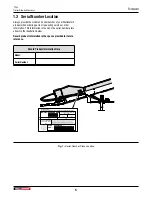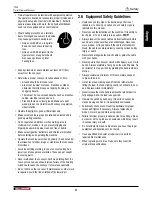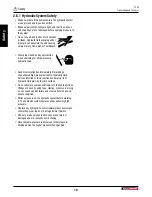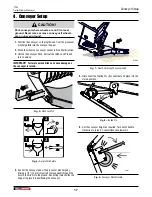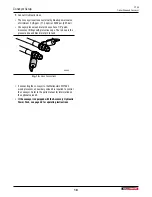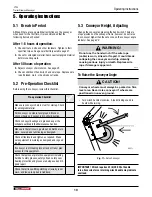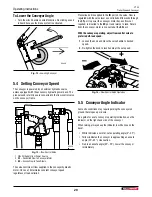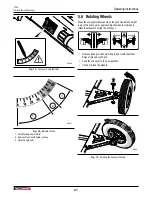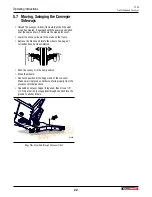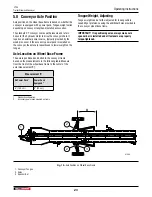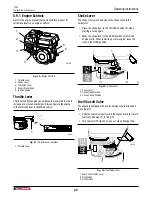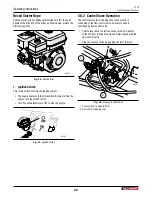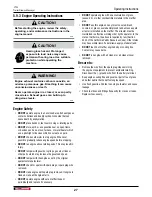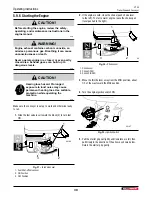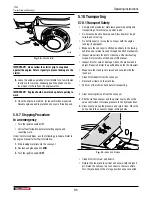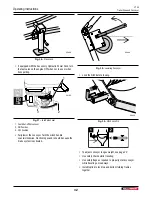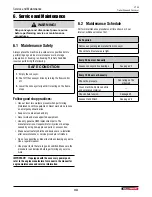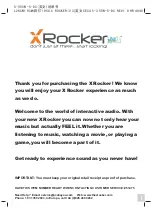
5. Operating Instructions
5.1 Break-in Period
Although there are no operational restrictions on the conveyor
when used for the first time, it is recommended that the
following items be checked:
After 1–5 hours of operation:
1.
Check all nuts, bolts, and other fasteners. Tighten to their
specified torque. See general bolt torque table
2.
Check for entangled material. Remove all entangled material
before resuming work.
After 50 hours of operation
3.
Adjust conveyor chain tension. See
4.
Check condition of hand winch and wire rope. Replace wire
rope if kinked, worn, or has broken strands.
5.2 Pre-Operation Checklist
Before using the conveyor, review this checklist.
Pre-operation Checklist
Make sure conveyor chain is clear for startup. Check
for entangled material.
Park conveyor on stable, level ground. Block or
chock wheels so it cannot roll in either direction.
Check conveyor bearings are greased as per the
schedule outlined in the Maintenance Section.
Make sure that all covers, guards and shields are in
place, secured and functioning as designed.
Check all fasteners and tighten as required. Make
sure equipment is working as designed and in good
repair.
If conveyor is off-loading into a truck or trailer, plan
access for this equipment.
Check that personal protection equipment including
hard hat, safety glasses, safety shoes, safety vest,
hearing protection and gloves are being used and in
good repair.
Check that all loose-fitting clothing or jewelry is not
worn, and loose, long hair is tied back.
5.3 Conveyor Height, Adjusting
Change the conveyor angle using the hand winch. There are
stops provided on the conveyor frame; however, do not raise
the conveyor higher than the safe zone on the conveyor angle
indicator. See
WARNING!
Do not use the hand winch if the wire rope
(cable) is worn, kinked or frayed. It could break
collapsing the conveyor and whip violently
causing serious injury or death. Replace wire
rope if damage is apparent.
W046
To Raise the Conveyor Angle
CAUTION!
Conveyor wheels must always be parked on firm,
level area. Never raise conveyor if wheels are
positioned on uneven ground.
•
Turn winch handle clockwise. A loud clicking sound is
heard while raising.
00271
Fig. 11 –
Raise Conveyor
IMPORTANT! Winch requires 45 lb (200 N) of handle
force. Excessive force in turning winch handle may indicate
overload.
CT24
Trailer Firewood Conveyor
Operating Instructions
19

